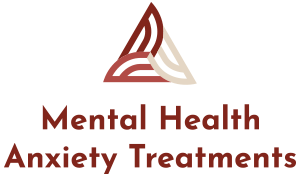Life has its difficulties, and being unhappy occasionally is not among the warning signs of depression. However, if your feeling of despair, desperation, and melancholy lasts for weeks or months, visit a mental health treatment center for a professional examination.
Types of Depression
Depression is a complex mental disorder that goes past the usual response to life’s challenges and agonies. It changes your moods and thinking, negatively impacting your life.
The first step towards healing and recovery is to determine if your persistent, dark mental state is resulting from depression. If so, you’ll need to identify the type of depression you have.
There are many forms of depression in the US, but read on for the most common types.
Clinical Depression
Typically, depression ranges in severity; it can be a mild, temporary, or persistent feelings of sadness. Clinical depression (also known as major depression) is a more serious mental disorder whose common symptoms include:
- Irritability, angry outbursts, and frustrations, even over insignificant issues
- Feelings of emptiness, sadness, and hopelessness
- Disinterest in usually pleasurable activities, such as sex, sports, and hobbies
- Restlessness, anxiety, and agitation
- Suicidal attempts and regular suicidal thoughts
- Unexplained physical problems, for instance, headaches and back pain
Depressive Episode
In the context of clinical depression, a depressive episode is a period of low moods that comes together with other common signs of depression, lasting for two or more weeks. Common symptoms of a depressive episode include anxiety, fatigue, difficulty concentrating, a shift in sleep patterns, changes in weight and appetite, and feelings of worthlessness or guilt.
Common signs of a severe depressive disorder are psychotic symptoms, such as delusions or hallucinations. When people hallucinate, they may see, hear, taste, smell, and feel unreal things.
Reactive Depression
Reactive depression emanates from a particularly stressful incident in your life. You can have prolonged periods of depression when you go through significant changes in your life, such as the death of a family member, divorce, loss of employment, and development of a chronic illness.
Dysthymia & Cyclothymia
You might have dysthymia if you’ve been feeling low for several years. The condition isn’t severe enough, or the episodes aren’t extensive enough for a psychiatrist to detect recurrent depressive disorder.
On the other hand, persistency in unstable moods might mean you’re suffering from cyclothymia. When you have this disorder, you’ll experience some periods of elation followed by anxiety. However, these periods aren’t persistent or severe enough for a doctor to diagnose the condition.
In the US, cyclothymia affects 10% of women within one year of giving birth.
Seasonal Affective Disorder (SAD)
People with SAD experience the symptoms at the same time of the year—this kind of depression usually occurs during winter. Symptoms of SAD are the same as those of other types of depression, although most people report that they sleep more and crave carbohydrates like cakes, chocolate, and bread.
A mental health treatment program can provide support for the signs of SAD or clinical depression. If you’re depressed, seek professional help before your condition becomes worse.
The Common Signs of Depression
If your sad mood lasts for an abnormally long period and interferes with your daily life, it might be depression. The symptoms common to all types of depression include:
- Constant anxious or sad feelings
- Loss of interest in previously pleasurable activities
- A sense of irritability, frustration, and restlessness
- Inability to fall or stay asleep
- Change in eating habits
- Gastrointestinal problems, headaches, and body aches
- Inability to remember things, concentrate and make decisions
- Hurting yourself and suicidal thoughts or attempts
Depression is a severe mental disorder that needs urgent medical attention. If you or your loved ones display the signs of depression, visit a depression treatment center today.






